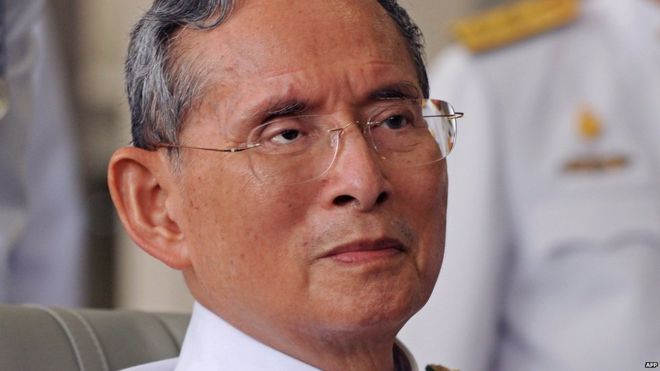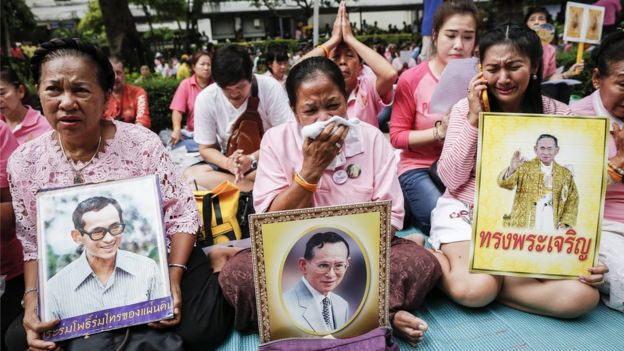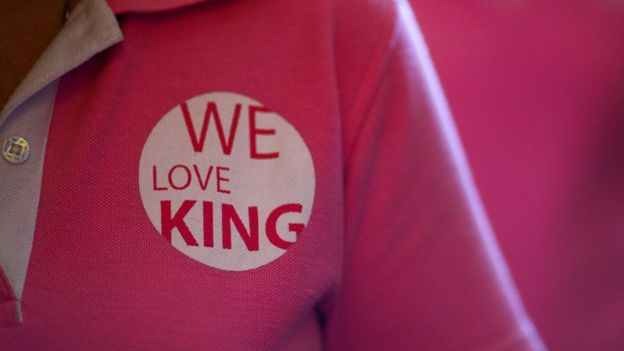
Thailand’s King Bhumibol Adulyadej, the world’s longest-reigning monarch, has died after 70 years on the throne, the palace says.
The king, 88, was widely revered in Thailand. He was seen as a stabilising figure in a country hit by cycles of political turmoil and multiple coups.
He had been in poor health in recent years and made few public appearances.
The king’s death comes as Thailand remains under military rule following a coup in 2014.
The palace had warned on Sunday that the king’s health was “not stable”.
Many Thais had been wearing pink to try to bring good luck to the ailing monarch. Hundreds of people had gathered outside the hospital where he was being treated.


“His Majesty has passed away at Siriraj Hospital peacefully,” the palace statement said, adding he died at 15:52 (08:52 GMT).
Parliament is to hold a special session at 21:00 local time (14:00 GMT).
Unifying monarch
King Bhumibol’s heir-apparent is 63-year-old Crown Prince Vajiralongkorn, who does not attract the same level of affection as his father.
Strict lese-majeste laws mean public discussion of the succession are punishable by lengthy jail terms.
Given the pivotal role the king has played in maintaining the balance of power in Thailand’s volatile political environment, the succession will be a formidable challenge for the government, says the BBC’s Jonathan Head in Bangkok.
King Bhumibol, who was born in Cambridge in the US state of Massachusetts, acceded to the throne on 9 June 1946 after his brother, King Ananda Mahidol, died.
Though a constitutional monarch with limited powers, King Bhumibol was regarded by many Thais as semi-divine. They looked to him to intervene in times of high tension.
He was seen as a unifying and calming influence through numerous coups and 20 constitutions.
However, his critics argued he had endorsed military takeovers and at times had failed to speak out against human rights abuses.
– BBC
